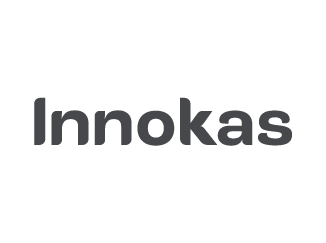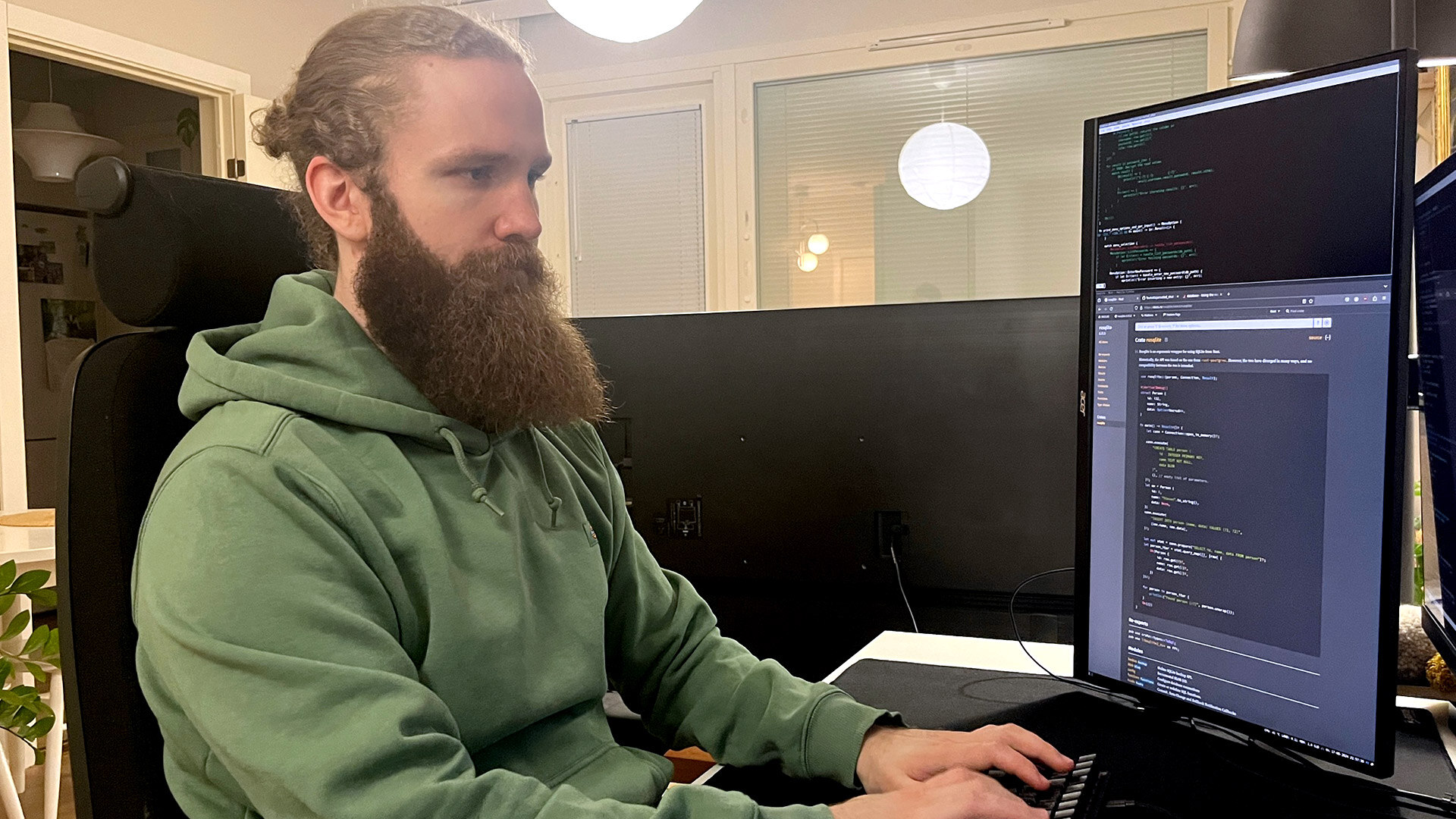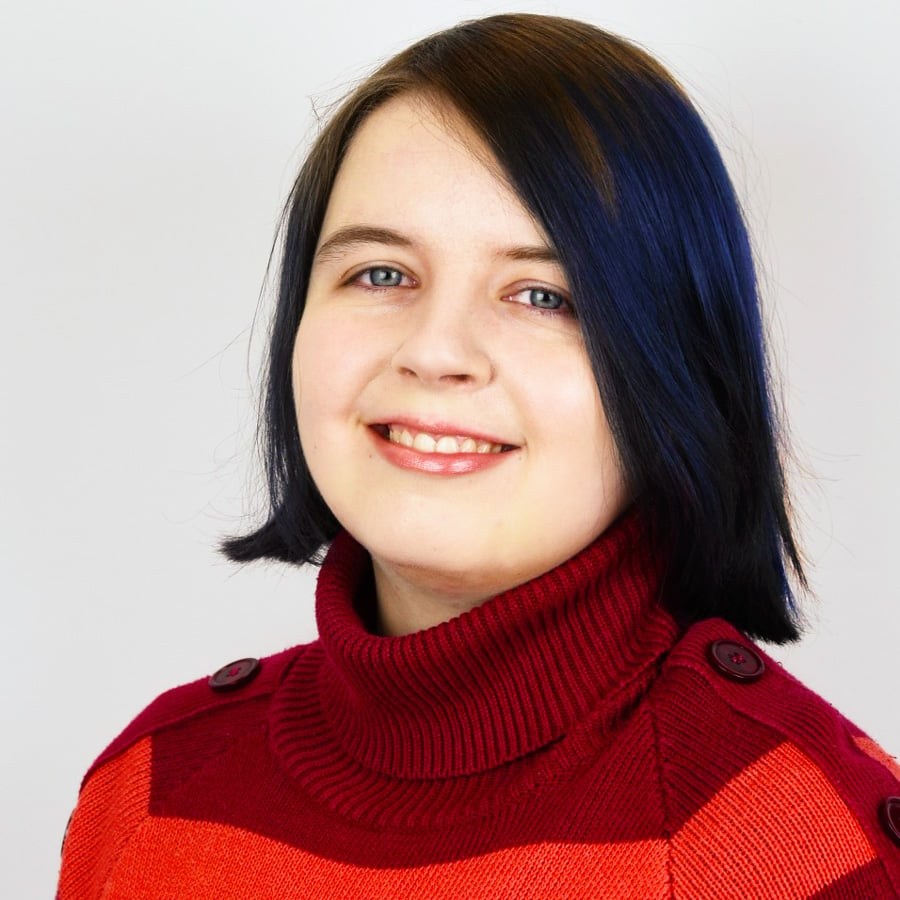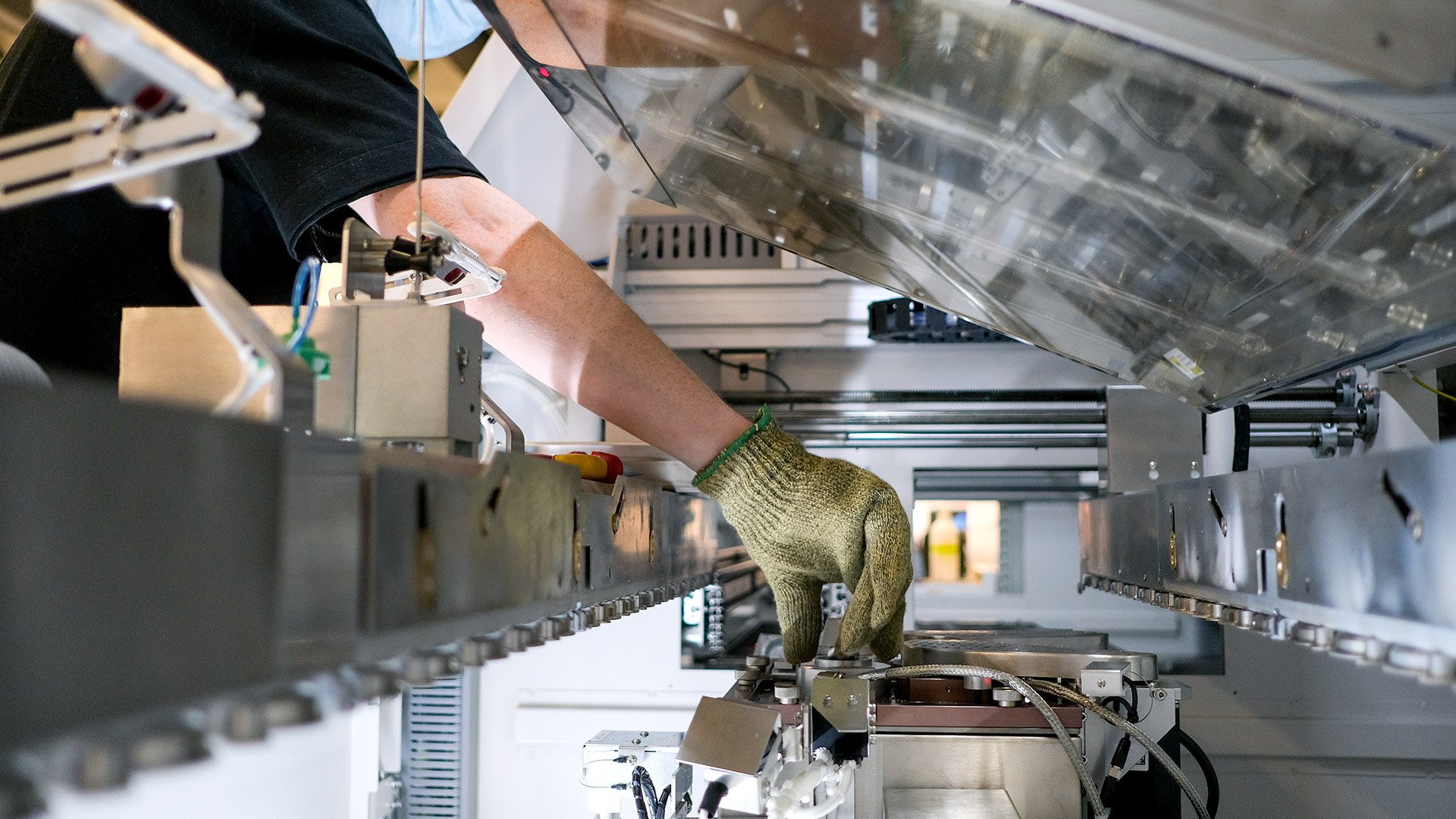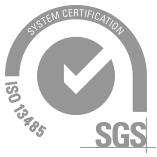The saying goes “find a job you love, and you will never have to work a day in your life”. Turning a beloved hobby into your career is in the hearts of many people; supporting yourself by expressing your passion is a dream come true. Some people are averted by the idea however, fearing that turning a hobby into a job might inevitably mean they don’t have a hobby anymore. Innokas engineer Jussi Koskinen is in the first group. Not only is software development his job, it’s also both hobby and a school career at the same time. This is his story on how he balances software development in work, in school and at leisure.
"The beginning of my career is quite typical for those in this field," Jussi begins. "I have always been fascinated by computers, starting with games and web surfing, which naturally led me to explore how everything is built from the ground up. So, when it came time to choose a career to study, I knew exactly what I wanted to do."
Jussi never had any conflicting thoughts on whether to turn software into a career or not. In addition to his initial degree, he is in Cybersecurity master’s program in University of Oulu. So, he does software development for job, school, and leisure.
"I personally didn't find it difficult to maintain a balance. Work hours are fixed, and schoolwork takes a few hours each day. After that, working on my personal software projects doesn't feel burdensome, even though I'm essentially doing the same thing all day," Jussi shares.
The key to maintaining this balance lies in how different coding for work and leisure is for Jussi. Coding for leisure means there are usually no strict obligations. "Because I’m developing for my own enjoyment. When it’s fun, there’s no need for external motivators," he explains.
Jussi finds satisfaction in customer work as well. "It's a different experience, yet equally important and enjoyable in its own right. Working with customers allows me to improve in everything that comes with software development aside from hands-on coding. Especially communication skills are crucial; it’s important to establish mutual understanding with the customer, be able to specify the requirements precisely and document everything just right,” Jussi elaborates.
“With well thought out documentation and well-maintained codebase I can ensure anyone who joins the project later can get up to speed immediately and not use the first few weeks to catch up. That’s what makes everything flow well. I can’t always have the same freedom as I could when doing this for leisure, but that’s what drives improvement in its own right,” he adds. "Moreover, receiving positive feedback from customers and coworkers is undeniably the highlight."
Creativity is at the front and center of software development. When you want the software to carry out a task or purpose, there are many ways you can get there. “It’s up to you to determine the best approach. It keeps you engaged,” Jussi confirms. “If you're considering entering software development, my best advice is to never expect that learning stops at any point and that you'll be fully prepared for everything. This field evolves constantly: methodologies shift, technological opportunities expand, and so on. Expect constant improvement,” he finishes.

